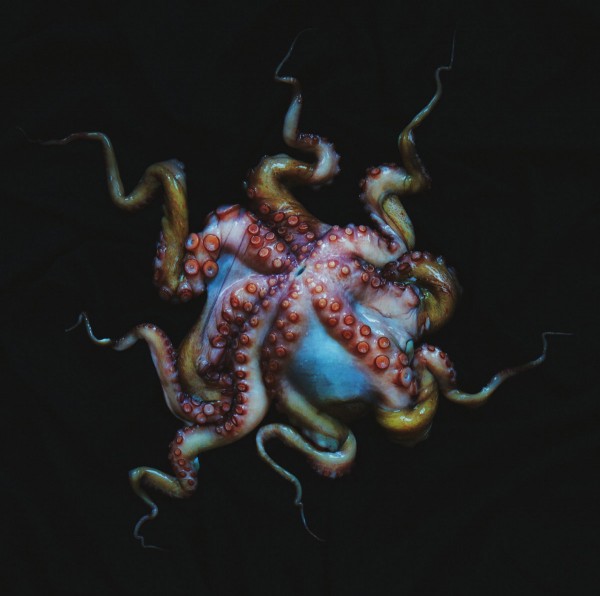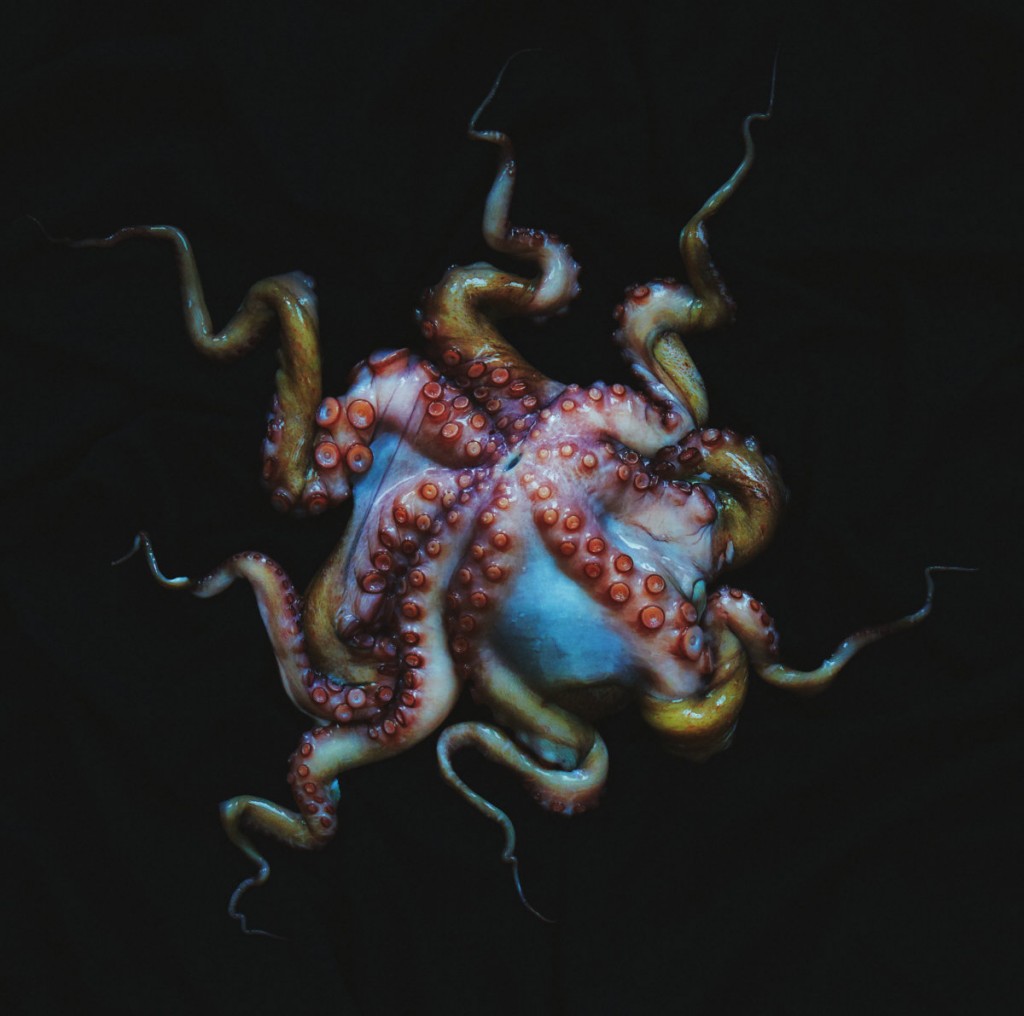It’s nice when an LP’s cover so succinctly summarises what the album holds. Heat and Entropy, the latest LP from experimental Scottish composer Ben Chatwin, has one of those images. The picture in question is of the underside of a squid against a purely black backdrop. It’s crisp, detailed and leaves to the imagination as the mouth, suction cups and moisture of the cephalopod’s underside are prominently visible. It’s a striking and almost hideous vision of the natural world that because of the void-like darkness that surrounds it; it looks as though it would torment you were you in a Cronenberg film. The lighting and framing of the image are inherently unnatural, yet it’s subject is an honest representation of the world, in all its beauty and disorder. A marriage of the organic and the synthetic which is, ultimately, what Chatwin wants to explore on the record and while the music isn’t as successful in this aim as the masterful artwork, Heat and Entropy still makes for a curious listen.
This coupling of the artificial and real is best evidenced in the instrumentation used. The press notes highlight how Chatwin wanted to use only string instruments forcing him to plunder into the most obscure of places. These tools, such as the dulcitone which is used heavily in the opening track, create such an alien, unfamiliar sound that it’s hard to fathom that they might actually be genuine. This impression is further amplified by his decision to modify his more standard instruments through the use of bow strings and even duct tape. When this is mixed with the grounding of subtle electronic music, there are glimmers of real magic as is the case with ‘Corpseways’ and ‘Oscillations’. When it works it is foreboding, delicate, and haunting. Managing to encompass that same kind of wonder and intrigue that John Carpenter had the monopoly on for decades in much more formal, orchestral manner. Further adding to this sense is the presence of scientific and mythological terminology in the titles of songs. The rigidity and irrefutable nature of ideas like ‘Gravitational Bodies’ and ‘Euclidean Bodies’ contrast beautifully with fabled concepts like ‘The Kraken’ to once again blur that line between objective truth and subjective fancy.
Fundamentally, though, in spite of the goodwill H&E has earned it never lives up the promise that any one of its individual components offers. There is so much here to explore and grasp onto but at no point do any of these individual threads pull on anything deeper. Pieces come and go without even a second glance and by the end of it, you’re left with this sensation of having heard a quite good record that hasn’t managed to make any lasting impression. What’s so odd about all this is that there is a consistent through-line, mood, and atmosphere at all points. Yet it only uses these to become something less than the sum of its parts. What you’re left with is is an incredibly well composed, intelligent and convincing voice saying a whole lot of very little. Will Murphy







